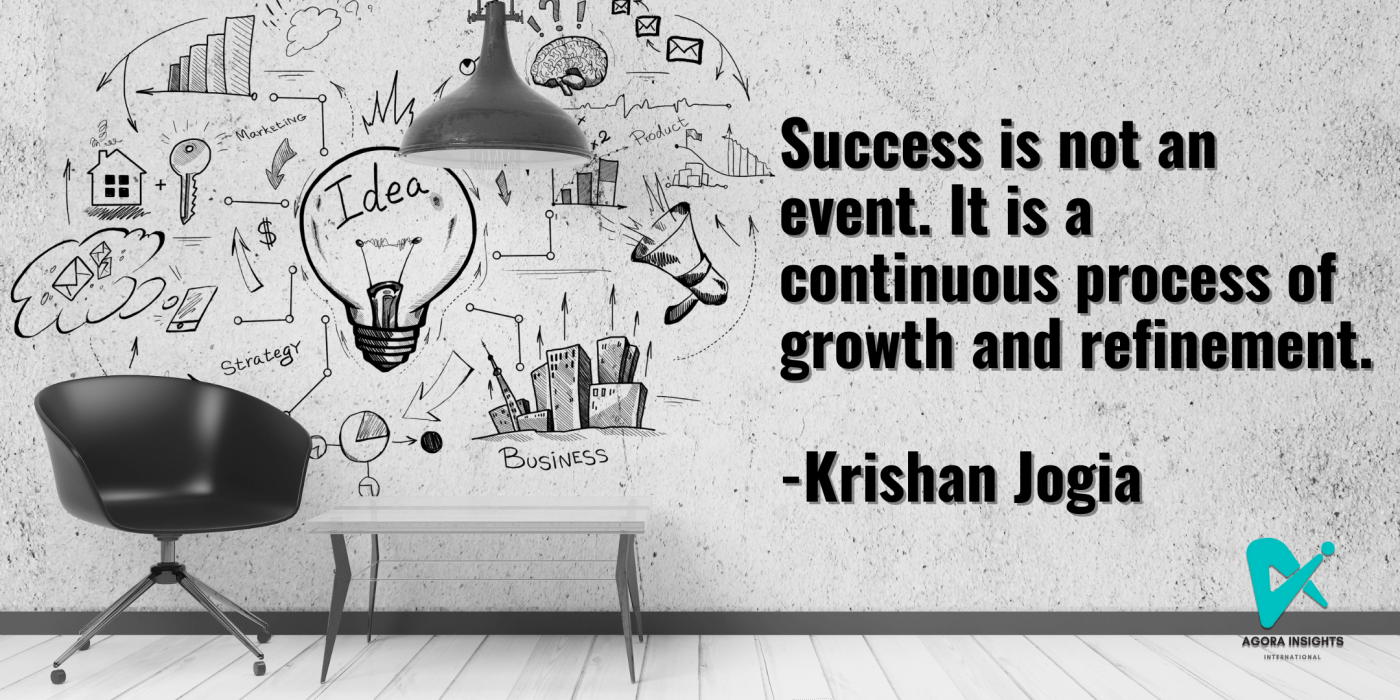Background
Krishan is a management consultant who specialises in strategy, business design and investment management. His passion is to help organisations design executable strategies that provide an anchor to guide operating model transformation. Krishan has a proven track record of building high-performance teams that can drive meaningful change on a global scale.
Krishan is a Certified Business Architect (BIZBOK) and Certified Enterprise Architect (TOGAF) with an Executive Master’s in Business Administration. He has experience working on “both sides of the table”, leading strategy and architecture functions within organisations, as well as extensive experience in consulting.
Krishan is the founder of Evolve&Amplify. Headquartered in Australia and Canada with a global reach, E&A helps local and international organisations discover, define, develop, and deliver on their strategic objectives. Krishan is based in Toronto, Canada, and is currently focusing on the firm’s global growth.
Three Key Insights
1. The Evolving Role of Business Architecture
Architecture is not merely a static framework; it's an ever-changing discipline that adapts to the shifting landscapes of organizational needs and technological advancements. Krishan, with his extensive experience in strategy and business design, shares his insights into how business architecture has gained recognition over the years. However, despite its growing prominence, there remains a gap in understanding what constitutes high-quality and effective business architecture.
As organizations become more aware of the value that true business architecture brings, the challenge now lies in setting and adhering to standards that define its quality and effectiveness. This is crucial as businesses seek to ensure that their investments in business architecture translate into tangible outcomes and benefits.
2. AI and Technology in Business Conversations
The impact of AI and technology on business conversations and decision-making cannot be overstated. Krishan points out that AI and machine learning are not just buzzwords; they're reshaping how businesses operate and strategize. These technologies have the potential to augment the insights provided by business architects, offering a new dimension to strategic planning and execution.
However, Krishan emphasizes the importance of retaining strategic human thinking amidst the integration of AI tools. While AI can enhance our capabilities, it should not replace the nuanced and forward-thinking approach that human strategists bring to the table. The true value of AI in business lies in its ability to support and extend human expertise, not to supplant it.
"Success is not a static destination. It's a lifelong journey."
- Krishan Jogia
3. Career Growth and Continuous Learning
Reflecting on his own career journey, Krishan highlights the importance of continuous learning and the value of mentorship. He advises those entering the field to be patient and open to learning from a variety of experiences. Experimentation and a willingness to learn from mistakes are key to professional growth.
Krishan also points out the significance of translating complex architectural concepts into business-friendly language. This skill is crucial for architects who must communicate effectively with different business lines and stakeholders. Understanding the language and needs of various business areas is essential for collaboration and delivering impactful outcomes.

10 Key learning points
- Be patient and trust the process of your career development.
- Don't rush; every experience contributes to your professional growth.
- It's okay to experiment and learn from failures.
- Focus on delivering benefits and outcomes, not just on the title or role.
- Understand the importance of language in effectively communicating with business stakeholders.
- Develop strong information modeling skills for working with centralized repositories.
- Adapt delivery styles to meet customer needs and maturity levels.
- Be prepared to compromise when necessary but also stand firm on your expertise.
- Look for opportunities to learn from adjacent disciplines like product development.
- Don't be intimidated by the prestige of top-tier firms, trust in your own abilities and knowledge.
Conclusion
In closing, my conversation with Krishan was incredibly insightful, offering a blend of strategic thinking and practical advice. His perspective on ensuring that the future of business architecture is grounded in understanding, knowledge of the field with the relevant competencies is vital. And looking at the integration of AI, and the personal growth and competencies needed for success provides valuable guidance for professionals in the field. It's clear that as business architects, we need to be authentic, to trust the process of our career development. We also need to be adaptable, continuous learners, and confident in our skills to navigate the complexities of modern business environments.
Feel free to share in our Blueprints for Success Podcast or comment with any questions!

Learn more about Krishan
Evolve&Amplify, or E&A for short, is an independent strategy and business design consultancy headquartered in Australia and Canada. Their team of human-centred designers, business architects and strategists employ an amalgamated approach to business architecture, human-centred design, strategy design and investment management to deliver executable, measurable, and meaningful outcomes to the world's leading government, industry, and purpose-led organisations.


Post a Comment